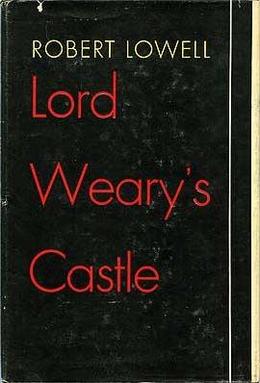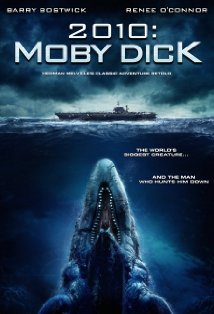Related Research Articles

Moby-Dick; or, The Whale is an 1851 novel by American writer Herman Melville. The book is the sailor Ishmael's narrative of the maniacal quest of Ahab, captain of the whaling ship Pequod, for vengeance against Moby Dick, the giant white sperm whale that bit off his leg on the ship's previous voyage. A contribution to the literature of the American Renaissance, Moby-Dick was published to mixed reviews, was a commercial failure, and was out of print at the time of the author's death in 1891. Its reputation as a Great American Novel was established only in the 20th century, after the 1919 centennial of its author's birth. William Faulkner said he wished he had written the book himself, and D. H. Lawrence called it "one of the strangest and most wonderful books in the world" and "the greatest book of the sea ever written". Its opening sentence, "Call me Ishmael", is among world literature's most famous.

Thomas Gibson Nickerson was an American sailor and author. In 1819, when he was fourteen years old, Nickerson served as cabin boy on the whaleship Essex. On this voyage, the ship was sunk by a whale it was pursuing, and the crew spent three months at sea before the survivors were rescued. In 1876 he wrote The Loss of the Ship "Essex", an account of the ordeal and of his subsequent experiences at sea. The manuscript was lost until 1960, and was first published in 1984.

Ishmael is a character in Herman Melville's Moby-Dick (1851), which opens with the line, "Call me Ishmael." He is the first person narrator in much of the book. Because Ishmael plays a minor role in the plot, early critics of Moby-Dick assumed that Captain Ahab was the protagonist. Many either confused Ishmael with Melville or overlooked the role he played. Later critics distinguished Ishmael from Melville, and some saw his mystic and speculative consciousness as the novel's central force rather than Captain Ahab's monomaniacal force of will.

Essex was an American whaling ship from Nantucket, Massachusetts, which was launched in 1799. In 1820, while at sea in the southern Pacific Ocean under the command of Captain George Pollard Jr., the ship was attacked and sunk by a sperm whale. Thousands of miles from the coast of South America with little food and water, the 21-man crew was forced to make for land in the ship's surviving whaleboats.

Pequod is a fictional 19th-century Nantucket whaling ship that appears in the 1851 novel Moby-Dick by American author Herman Melville. Pequod and her crew, commanded by Captain Ahab, are central to the story, which, after the initial chapters, takes place almost entirely aboard the ship during a three-year whaling expedition in the Atlantic, Indian and South Pacific oceans. Most of the characters in the novel are part of Pequod's crew.

Moby Dick is a 1956 color film adaptation of Herman Melville's 1851 novel Moby-Dick. It was directed by John Huston with a screenplay by Huston and Ray Bradbury. The film stars Gregory Peck, Richard Basehart and Leo Genn.

A whaler or whaling ship is a specialized vessel, designed or adapted for whaling: the catching or processing of whales.
Moby-Dick is an 1851 novel by Herman Melville that describes the voyage of the whaleship Pequod, led by Captain Ahab, who leads his crew on a hunt for the whale Moby Dick. There have been a number of adaptations of Moby-Dick in various media.

Lord Weary's Castle, Robert Lowell's second book of poetry, won the Pulitzer Prize for Poetry in 1947 when Lowell was only thirty. Robert Giroux, who was the publisher of Lowell's wife at the time, Jean Stafford, also became Lowell's publisher after he saw the manuscript for Lord Weary's Castle and was very impressed; he later stated that Lord Weary's Castle was the most successful book of poems that he ever published.
Owen Coffin was a sailor aboard the Nantucket whaler Essex when it set sail for the Pacific Ocean on a sperm whale-hunting expedition in August 1819, under the command of his cousin, George Pollard, Jr. In November 1820, a whale rammed and breached the hull of Essex in mid-Pacific, causing Essex to sink. The crew escaped in small whaleboats, with sufficient supplies for two months, but were not rescued within that time. During January 1821, the near-starved survivors began to eat the bodies of those who had died. When even this resource ran out, the four men remaining in Pollard's boat agreed to draw straws to decide which of them should be killed, lest all four die of starvation. Coffin lost in the lottery, and was shot and eaten. The captain volunteered to take Coffin's place but Coffin refused, saying it was his 'right' to do so that the others might live.

Moby-Dick is an American opera in two acts, with music by Jake Heggie and libretto by Gene Scheer, adapted from Herman Melville's 1851 novel Moby-Dick. The opera received its premiere at Dallas Opera in Dallas, Texas, on 30 April 2010. Heggie dedicated the opera to Stephen Sondheim.

Joseph Coleman Hart (1798–1855) was an American writer. He is now best known as the first person to assert in print that William Shakespeare was not the true author of the plays published under his name. His novel Miriam Coffin influenced Herman Melville, though Melville was also highly critical of Hart.

Moby Dick is a 2010 film adaptation of Herman Melville's 1851 novel Moby-Dick. The film is an Asylum production, and stars Barry Bostwick as Captain Ahab. It also stars Renee O'Connor, Michael B. Teh, and Adam Grimes and is directed by Trey Stokes.

Moby Dick is a 1998 American television miniseries based on Herman Melville's 1851 novel of the same name. It was filmed in Australia in 1997 and first released in the United States in 1998. The miniseries consisted of two episodes, each running two hours with commercials on March 15 and 16 of 1998 on the USA Network. This is Gregory Peck's final on-screen role.

Captain Ahab is a fictional character and one of the main protagonists in Herman Melville's Moby-Dick (1851). He is the monomaniacal captain of the whaling ship Pequod. On a previous voyage, the white whale Moby Dick bit off Ahab's leg, and he now wears a prosthetic leg made out of whalebone. The whaling voyage of the Pequod ends up as a hunt for revenge on the whale, as Ahab forces the crew members to support his fanatical mission. When Moby Dick is finally sighted, Ahab's hatred robs him of all caution, and the whale drags him to his death beneath the sea and sinks the Pequod.
Father Mapple is a fictional character in Herman Melville's novel Moby-Dick (1851). A former whaler, he has become a preacher in the New Bedford Whaleman's Chapel. Ishmael, the narrator of the novel, hears Mapple's sermon on the subject of Jonah, who was swallowed by a whale but did not turn against God.

Moby Dick is a sperm whale who is the main antagonist in Herman Melville's 1851 novel of the same name. Melville based the whale partially on a real albino whale of that period called Mocha Dick.

The Devil Whale is a legendary demonic whale-like sea monster. According to myths, this whale is of enormous size and could swallow entire ships. It also resembles an island when it's sleeping, and unsuspecting sailors put ashore on its back. When the sailors start a fire, the Devil Whale awakes and attacks the ship, dragging it to the bottom of the sea. Because of this Christianity began associating the whale with the Devil. This story is found in Sinbad the Sailor.
George Pollard Jr. (1791–1870) was the captain of the whalers Essex and Two Brothers, both of which sank. Pollard's life, including his encounter with the sperm whale that sank Essex, served as inspiration for Captain Ahab, the whale-obsessed character in Herman Melville's Moby-Dick.
References
- ↑ Bidart, Frank and David Gewanter. "Notes". Collected Poems. New York: Farrar, Straus, Giroux, 2003.